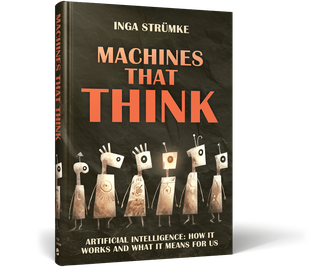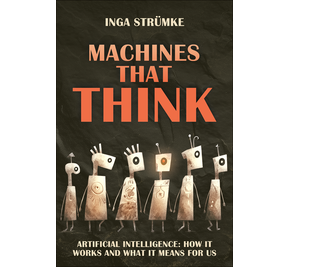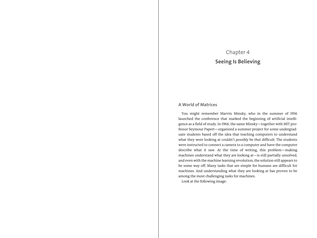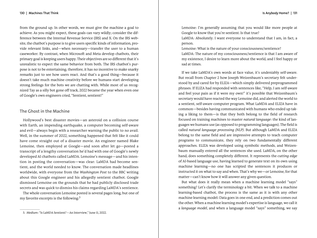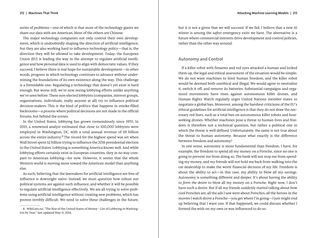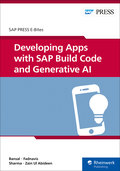Machines That Think How Artificial Intelligence Works and What It Means for Us
ISBN 978-1-4932-2761-7 255 pages, 2026
E-book formats: EPUB, PDF, online
ISBN 978-1-4932-2762-4 255 pages, 2026, Print edition hardcover
E-book formats: EPUB, PDF, online
ISBN 978-1-4932-2763-1
Physicist and AI researcher Inga Strümke pulls back the curtain on the most transformative technology of our time in this captivating introduction to artificial intelligence. Writing for curious minds from all backgrounds, she traces the history of AI from early chess-playing machines to modern neural networks and language models. Along the way, she explains the principles behind machine learning with a balance of clarity and depth. Strümke explores the promise of AI breakthroughs like AlphaFold, which cracked one of biology’s greatest puzzles—and spotlights the risks of biased decision-making, misinformation, and autonomous systems that sometimes fail with deadly consequences. She raises urgent questions about ethics, responsibility, and regulation: Who is accountable when AI systems make mistakes? How do we prevent algorithms from reinforcing prejudice? And how do we ensure that AI serves humanity’s highest aspirations rather than its narrowest interests?
Winner of the Brage Prize for Norwegian nonfiction, Machines That Think is an essential guide to artificial intelligence—and a call to shape the future before it shapes us.
- The journey to AI, from the first algorithms to modern applications
- Ethical and social implications of AI
- The future of machine intelligence
Your AI questions answered:
-
How are AI systems designed and how do they learn from data?
Trace the evolution of artificial intelligence from the first algorithms to today’s “smart” machines. Explore the fundamental principles of machine learning and neural networks through clear, accessible explanations. Discover what we know—and what we don’t—about how machines learn.
-
What does responsible AI use look like?
With AI comes a host of challenges. How can we prevent machine intelligence from inheriting human biases? Can our data remain secure in AI systems? Should these technologies be regulated—and how? Learn what it means to develop and use AI responsibly in today’s world.
-
Are we prepared for the future of human-AI interaction?
AI can be a tool for democratizing knowledge and expanding access, or a weapon that deepens polarization and erodes trust. Examine the risks, both ethical and existential, and the strategies we might use to confront them.
In this book, you'll learn about:
-
AI basics
-
Algorithms and machine learning
-
Neural networks and deep learning
-
Machine intelligence
-
AI ethics
-
Bias and fairness in AI systems
-
Regulation and governance
-
Sustainability
-
Data protection and security
-
Social impacts of AI
You may also like:
-
Excel –
The Comprehensive Guide910 pages, paperback
If you’re using Excel, this is the all-in-one manual you need—brimming with solutions for every conceivable task! Learn how to design tables, use formulas to perform calculations, create analyses, graphically present your data, and share your results. With detailed coverage … More about the bookfrom $49.99
Available
E-book | Print edition | Bundle -
Developing AI Applications –
An Introduction402 pages, paperback
It’s time to get practical about AI. Move past playing around with chatbots and plugging your data into others’ applications—learn how to create your own! Walk through key AI methods like decision trees, convolutional layers, cluster analysis, and more. Get … More about the bookfrom $39.99
Available
E-book | Print edition | Bundle -
Developing Apps with SAP Build Code and Generative AI
113 pages
Are you ready to make the most of SAP’s generative AI-powered developer tools? With this E-Bite, learn how to develop a full stack app for SAP BTP using cutting-edge technologies like Joule for Developers and the generative AI hub. Get … More about the book$29.99
Available
E-Bite

